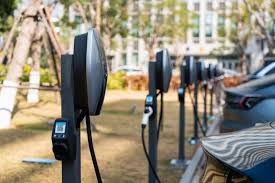The Transition from Fossil Fuel to Electric Vehicles: A Fact Check
As electric vehicles (EVs) continue to gain traction globally, skepticism and misinformation often muddy the facts. A popular claim infers that 1 in 3 EV drivers revert to petrol vehicles, but this figure seems overblown. It’s more plausible that the rate may hover around 3%, but the lack of clarity in mainstream media reporting blurs these stats.
Common Difficulties for EV Driving
Researching on Quora, one can find several anecdotes about drivers abandoning EVs. Common complaints include range anxiety, inconvenient charging options (insufficient high-speed chargers or difficulties with apartment life), and lack of space in compact models like the Nissan Leaf.
An interesting story from a few years back recounts a driver switching back to an internal combustion engine (ICE) powered car due to his Nissan Leaf’s limited power. However, he complained that his ICE car was slower in city traffic, primarily because electric drivetrains can react instantly, whereas normal engines need a second or two to reach the right RPM and select the ideal gear.
Exaggerated Concerns?
Many of the issues raised in these anecdotes are dated, as EV technology has advanced exponentially in recent years. Most new EVs can now travel over 400 km on a single charge, high-speed chargers are becoming ubiquitous, and innovative solutions like kerb charging are addressing the issue of charging for apartment dwellers. Furthermore, larger models like the Kia EV9 can comfortably accommodate larger families or pets.
Contrasting Experiences
This discussion was sparked by an account shared by Arthur Hunt, who compared driving a petrol car in Sydney to his Tesla. The differences were numerous and noticeable, from the need to physically unlock the car and release the parking brake, to the lack of adaptive cruise control and the inability to reclaim energy when coasting downhill.
Rates of EV to Petrol Recidivism
But are drivers really giving up on EVs in favor of petrol? This seems unlikely in countries with mature EV markets like Norway, but it may hold some truth in less developed markets.
A March 2024 UK survey by Top Gear found that 91% of EV drivers would not go back to combustion engines. Similarly, 88% of respondents without driveways (who rely on public charging) said they wouldn’t switch back either. Only 4% of those surveyed said they would definitely go back to petrol-powered vehicles.
US Stats: Fact or Fiction?
Conversely, McKinsey’s survey claimed that 46% of US EV drivers were likely to revert to traditional engines due to inadequate public charging infrastructure and high upkeep costs. However, this figure seems to contradict the fact that the majority of EVs sold in the US are Teslas, and majority of Tesla owners have expressed interest in purchasing another Tesla or at least another EV.
Many factors could influence the results of this survey, including the bias of questions, the potential over-representation of non-Tesla owners, or even the possibility that some respondents did not actually own an EV. Some have also questioned if the survey was sponsored by oil companies to skew the results.
Further surveys across different geographical regions would provide a more comprehensive view, but until then, there seems to be little evidence of a mass switch from EVs back to petrol-powered vehicles.
Original Story at cleantechnica.com
